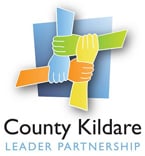www.gov.ie – 24th May 2021.
A note for the public on the recent cyber attack on the Department of Health
From Department of Health
Published on
Last updated on
- 1. What to do if you are concerned about your care, such as appointments or scans
- 2. What to do if you receive an unexpected phone call from an unrecognised number
- 3. What to do if you received an unexpected link via message or email
- 4. How to check if a website is legitimate before providing personal information
At the moment, the Department of Health is assessing the impact of the recent cyber attack in terms of systems and data affected.
A Departmental Cyber Response Team has been meeting regularly, with the aim of restoring the essential work of the department as quickly and safely as possible.
A key priority for the department is protecting the health and well-being of people in Ireland. This page aims to update you on the cyber attack.
If you are concerned about the recent cyber attack, there are some steps you can take to get some peace of mind and reassurance at this time.
These include some steps you can take to ensure the individual or organisation asking for the personal data is who they say they are, some advice on how to update yourself on the health service disruptions, and some ideas on how to look after your mental health at this time.
The HSE are regularly updating their website with updates on health service disruptions.
There are also regular updates being posted on the HSE’s social media channels such as Twitter.
If you receive an unexpected phone call from an unrecognised number and are asked to confirm or provide personal information such as your credit card details or PPSN, do not provide any information during the call.
If the caller is purporting to be from an organisation you have dealings with, such as your bank or a hospital, end the call and phone the number advertised on the organisation’s official website to confirm if the call came from the organisation.
Be wary of links that are forwarded to you by text message, messaging app or email, particularly if it is unexpected. There are ways you can check a link is legitimate before clicking on it – hover over it to view the URL and check for spelling errors (for example govt.ie instead of gov.ie) or use a URL checking tool such as Google Safe Browsing.
If you are asked to provide personal information on a website, make sure the padlock symbol is present in the URL toolbar – all websites should have this symbol. Do not provide any information if this symbol is not visible.
You may wish to change your password for any websites or apps that hold personal data belonging to you, or where possible opt for Multi-Factor Authentication. Avoid reusing a password across a number of websites. A strong password should include a mix of letters (upper and lower case), numbers and symbols.
An Garda Síochána are continuing in conjunction with national and international partners to pursue the investigation of this crime. The government urges anyone who has reason to suspect they are victims of this cyber-attack to make a report at their local Garda Station or through the Garda Confidential line. The line is open 24 hours a day, seven days a week on 1800 666 111.
People are also advised to be cautious of criminals taking advantage of fears around the HSE attack by contacting them to attempt to obtain information or payments. Any such attempts should be reported to An Garda Síochána.
Talking to others, getting out for a walk, engaging in something creative like reading a book or a hobby will help take your mind off things if you are finding this issue stressful. Try to focus on what you can do, and not worry too much about what you can’t.
Encourage vulnerable people in your life to take care with scam messages and calls, but also not to worry too much.
More advice on minding your mental health is available on the HSE website.

